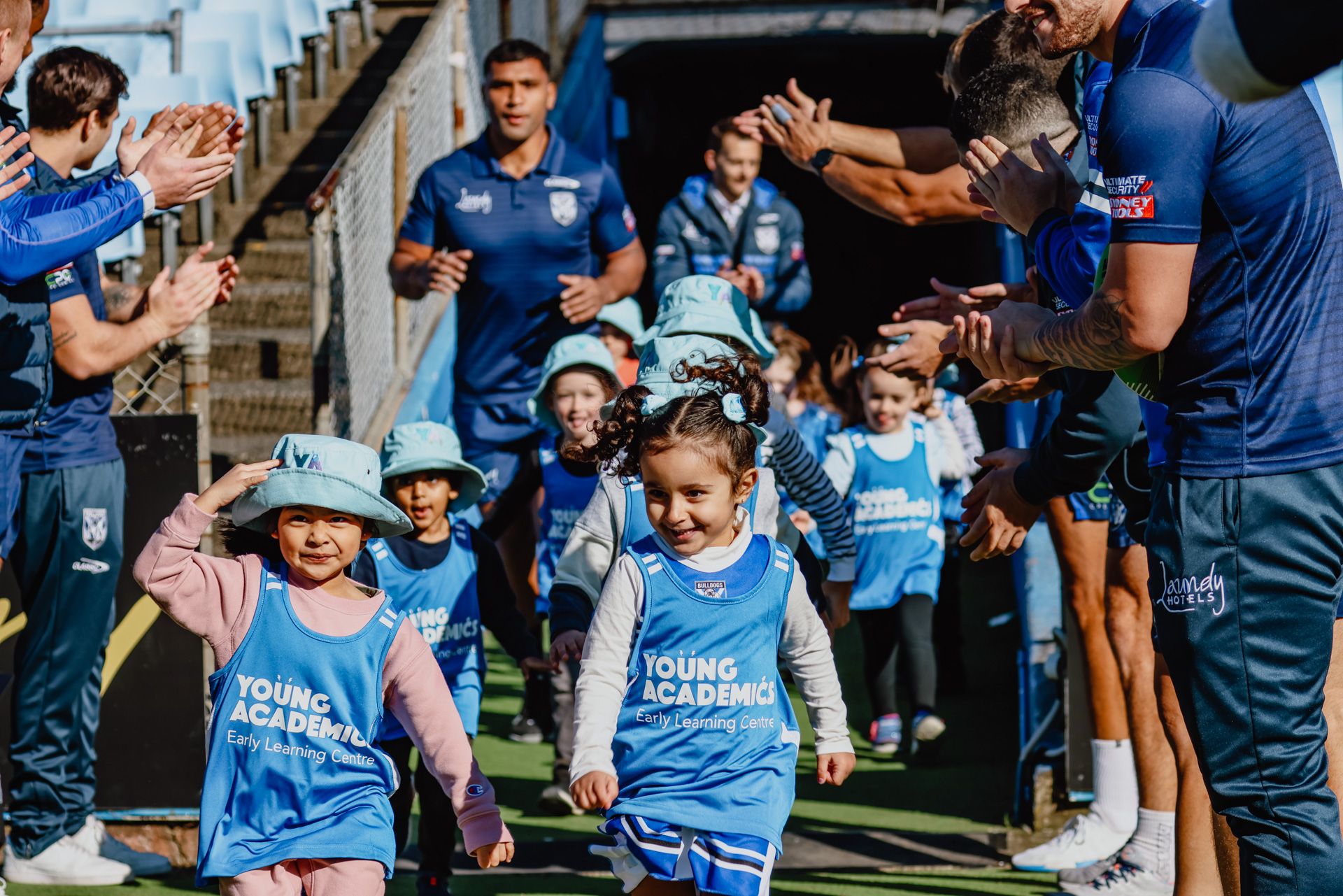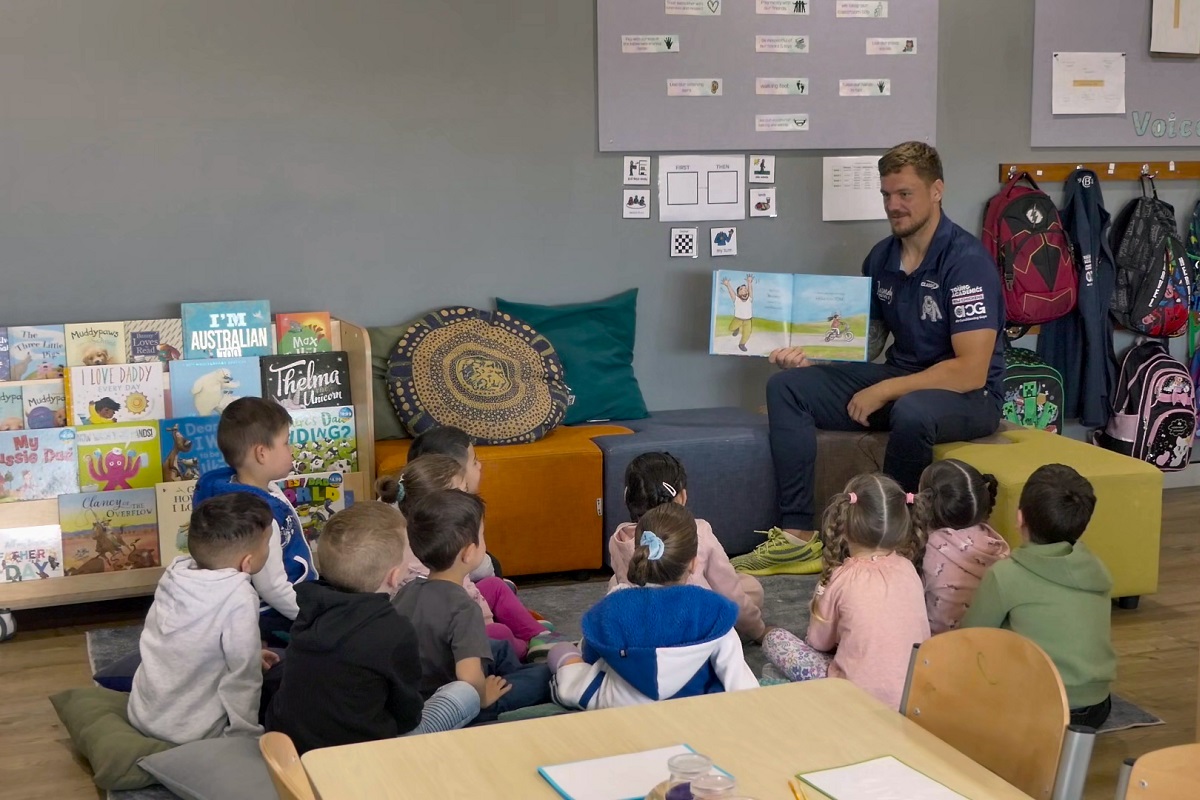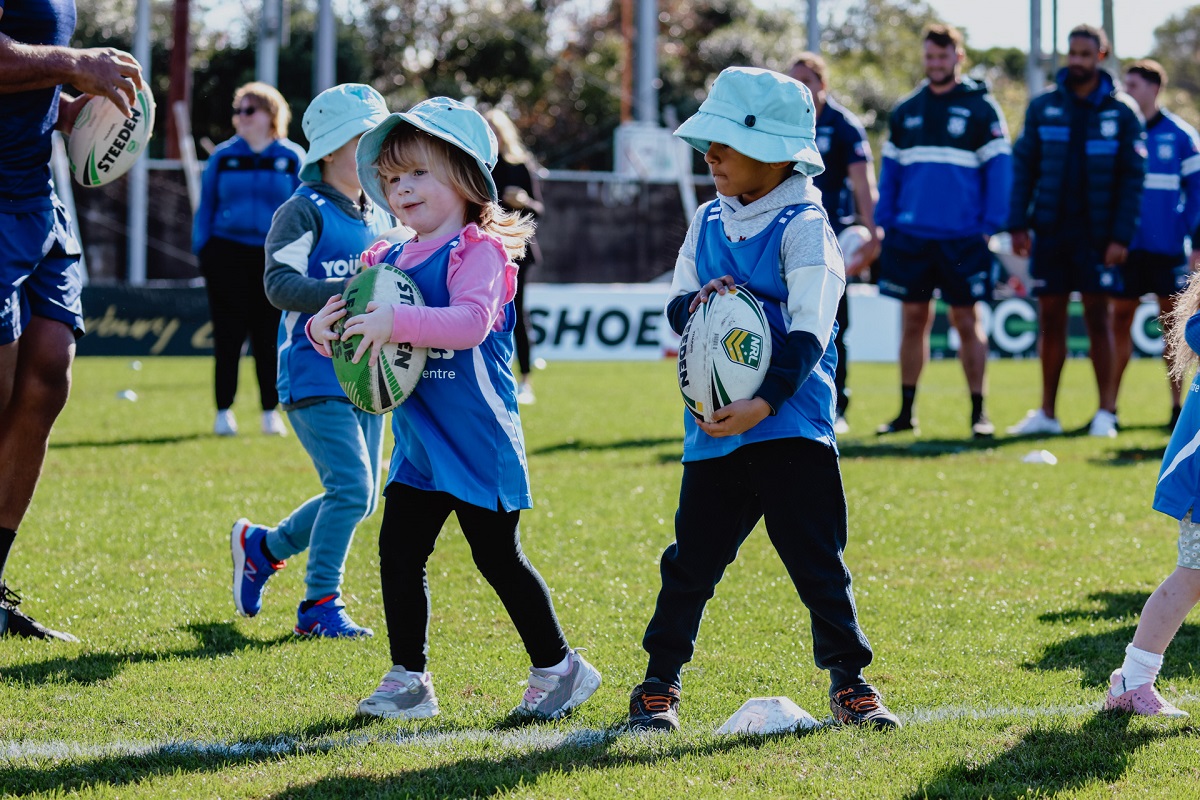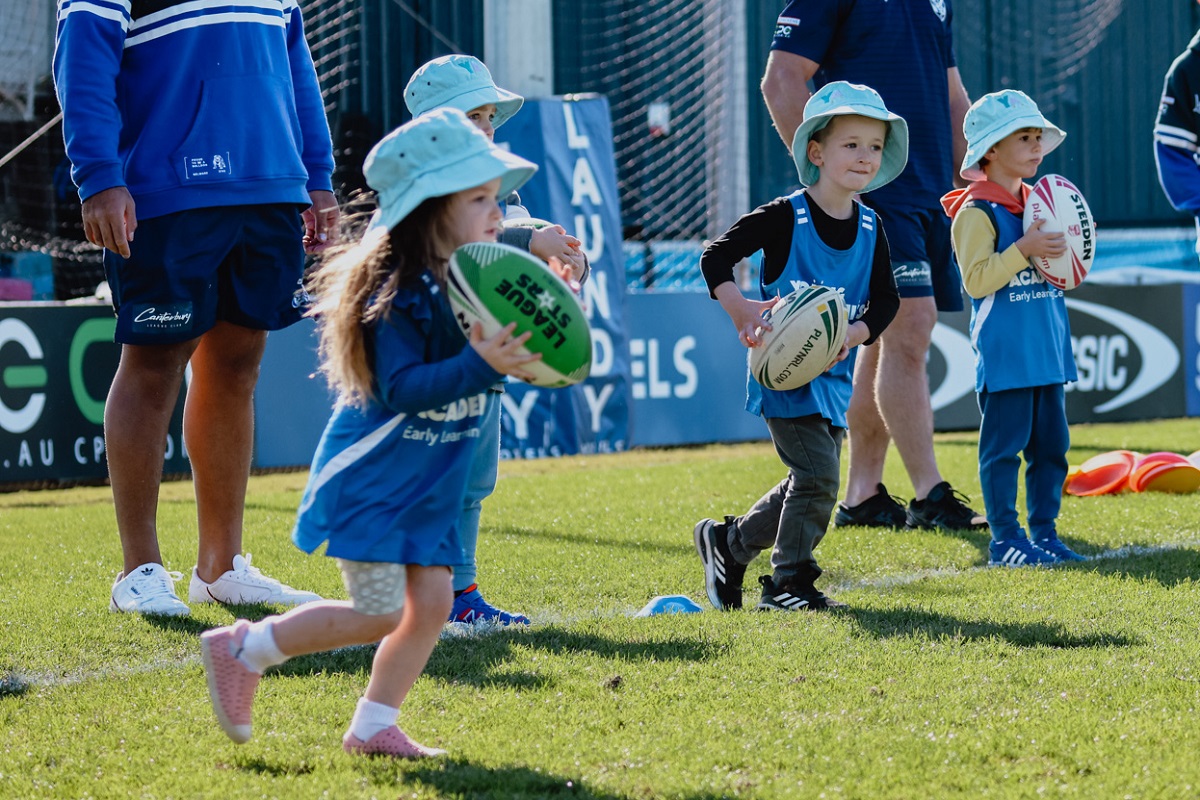Early learning provider Young Academics has teamed up with the Canterbury-Bankstown Bulldogs Rugby League Club to get preschoolers moving.
With less than 25% of Australian children meeting the recommended amount of daily physical activity, and screen time overtaking green time in the lives of toddlers to teens, it’s important that parents of preschoolers take action to get children moving…and fast.
This is one of the reasons expanding Sydney early learning provider Young Academics has partnered with the Canterbury-Bankstown Bulldogs Rugby League Club (Bulldogs) to create opportunities to inspire children and their families to get fit, play sport and be more active – and to offer their community a chance to interact with professional players and coaches to help develop an interest in physical activity from an early age.
“Through our ongoing engagement with the local community, it’s clear there’s a genuine need to encourage children to be more active, with parents and carers playing a crucial role from an early age. Whether it’s organised sports, skills sessions at pre-school like those we’ve run with Young Academics, or family activities, children can gain confidence, coordination and social skills through sport and fitness exercises,” said Barry Ward, General Manager Pathways & Junior League at Canterbury-Bankstown Bulldogs Rugby League Club.
“From joining forces with the Bulldogs to implementing a dedicated Music and Movement program which incorporates fun dance and fitness activities for the children in our care, Young Academics is taking a proactive approach to engage and motivate children to try new things and find physical activities they enjoy. Studies show that healthy, active children are more likely to grow into healthy, active adults, and government guidelines recommend at least 60 minutes of physical activity every day – with no more than two hours of screen time,” explained Young Academics Management.
Ward added that while the physical benefits of staying active for children are well known – reducing the risk of obesity, improving balance, fitness, and sleep, as well as muscle and bone growth – the social and emotional benefits are also incredibly valuable.
“From learning patience and persistence to following instructions, handling discipline, cooperating with teammates, gaining a sense of belonging and reducing stress, the benefits of participating in sports or physical activities are enormous,” said Ward.
Of course, despite parents’ and educators’ best efforts, some children will still feel anxious or reluctant about participating or may want to give up or quit soon after starting a new activity.
According to Young Academics Management, common reasons for children being reluctant to participate in team or sports activities include a lack of confidence, feeling pressured or not finding training ‘fun’, so it’s important to keep the focus on enjoyment, variety and participation to help strike the right balance.
Ward suggested practicing coordination and gross motor skills in a safe space with anxious children, or those are hesitant to participate, such as at home with siblings, or in a park, to help them feel more confident and comfortable.
“While the benefits of being part of a team are clear, it’s not for everyone, and some children will naturally prefer more individual activities such as swimming or tennis, which also offer terrific opportunities to be part of a club environment. Remember, the key is to get children off the couch and out and about to create good habits from an early age, and organised sports and activities are just one way to do it. Other options include bushwalking, swimming at the beach, bike rides, kayaking, playing chase in the park or having a living room disco – whatever keeps them moving!”
- Forget winning or losing – remember that learning to lose is an important life skill which teaches children to come back from disappointment and prepares them for life’s ups and downs.
- Focus on the positive element of the activity – having fun, learning, participating, making friends, improving, and trying new things.
- Don’t criticise mistakes from the sidelines – whether they’re your child’s, the other team’s, or the umpires. Watch your body language – children will notice if you throw your arms in the air or slump your shoulders if they make a mistake.
- Show your own enjoyment of physical activity, whether by playing sports, kicking a ball in the park with the family, or watching games or sporting activities together.
- Point out and praise players who are ‘good sports’ to help role model positive behaviour.
- Praise what your child can control – their individual effort – rather than the result, especially if they show determination and persistence.
- Get involved, whether it’s as a team manager, scorer, water carrier – or just by joining in casual physical activity at home or in the park.
- Encourage incidental physical activity whenever you can – like riding bikes or walking together to the park rather than driving.
- Provide resources at home to make physical activity fun – such as skipping ropes, balls, bikes, or hula hoops.
- Behave yourself when participating– don’t make excuses if you lose a game, don’t whinge about the umpires or the opposition and make sure you demonstrate how much fun you’re having when you’re active.
- Focus on developing general gross motor skills and coordination, rather than sport-specific skills, and be patient – it might take trying a few different things to find something your child loves. Remember, as much as you might love rugby, cycling or soccer, your child might prefer gymnastics, volleyball, or skateboarding – and that’s great.
- Be realistic – we’re not all going to raise an Olympian – and most children don’t develop the concentration skills or ability to understand the rules of organised sports before the age of six or seven.
SOURCES: Stanford Children’s Health, www.betterhealth.vic.gov.au



 BACK
BACK



